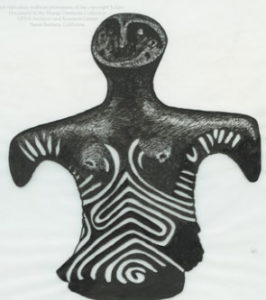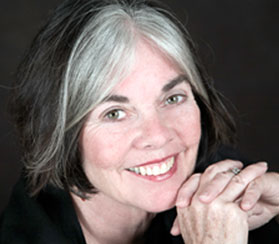Articles
Maureen Murdock, PhD is an author, educator, and Jungian-oriented psychotherapist who combines her interest in the mysterious workings of the psyche with a study of mythology and a love of story telling and memoir writing. We invite invite you to explore the following articles written by Maureen or about her work.
The Heroine’s Journey
By Maureen Murdock
Published in the Encyclopedia of Psychology and Religion edited by David A. Leeming, 2016
In 1949 Joseph Campbell presented a model of the mythological journey of the hero in The Hero with a Thousand Faces, which has since been used as a template for the psycho-spiritual development of the individual. This model, rich in myths about the travails and rewards of male heroes like Gilgamesh, Odysseus, and Percival, begins with a Call to Adventure. The hero crosses the threshold into unknown realms, meets supernatural guides who assist him in his journey, and confronts adversaries or threshold guardians who try to block his progress. The hero experiences an initiation in the belly of the whale, goes through a series of trials that test his skills, and resolves before finding the boon he seeks – variously symbolized by the Grail, the Rune of Wisdom, or the Golden Fleece. He meets a mysterious partner in the form of a goddess or gods, enters into a sacred marriage, and returns across the final threshold to bring back the treasure he has found (Campbell 1949, pp. 36–37).
The hero’s journey is a search for one’s soul and is chronicled in mythologies and fairy tales throughout the world. This quest motif does not, however, address the archetypal journey of the heroine. For contemporary women, this involves the healing of the wounding of the feminine that exists deep within her and the culture. READ MORE…
Paging Joseph Campbell
Turns out that the fabled Hero’s Journey is a bunch of hooey
when you’re writing about Heroines.
By Jill Soloway
Published in Los Angeles Magazine, October, 2011
When I came to Hollywood to be a writer, I learned the Hero’s Journey structure right away. First laid out in a famous 1985 memo by a development executive at Disney named Christopher Vogler, it has since become the go-to guide for how to write a commercial studio movie, and I dutifully embraced its form (three acts) and its inspiration (the mythologist Joseph Campbell). Back then every so often my mom would ask me to talk to her friends’ kids who’d moved to L.A. from Skokie, Illinois, determined to break into screenwriting. I’d sit across from them in a café and proudly share my command of the formula. READ MORE…
Longissima Via
By Maureen Murdock
Published in Mythological Studies Journal, Vol. 1, No. 1, 2010
Tragedy, alchemy and the process of psychological development travel a long but parallel path to redemption. The stages of tragedy mirror the stages of the alchemical pattern: death, rebirth, and the transformation of consciousness. Both define a journey that begins with blackness, a nigredo, which the alchemists describe as the dissolutio, or dismemberment of the self, and will end in a coniunctio, a joining together of the parts anew. Both tragedy and alchemy begins with impoverishment and some type of corruption which endures torture and ultimate submission to some drastic, mysterious and overwhelming process. Mythically, this can be seen in the anguish of Osiris’s dismemberment, the perils of the sea journey of Odysseus , the incestuous marriage that leads to exile and the death of Oedipus, and the dismemberment and death of both Inanna and King Lear. READ MORE…
Gimbutas, Marija, and the Goddess
 By Maureen Murdock
By Maureen Murdock
Published in Encyclopedia of Psychology and Religion, 2012
The work of Marija Gimbutas has been crucial to the growth of feminist spirituality, feminist religious scholarship, feminist psychology, and the liberating implications that the existence of a goddess tradition can bring to women everywhere. Whatever the reactions to Gimbutas’ theories,it is important to acknowledge the larger implications of the idea of an embodied sacred feminine that preceded patriarchy. >DOWNLOAD ARTICLE
Writing the Truth
By Maureen Murdock
The National Association of Memoir Writers hosted a presentation of this material on their teleseminar, July 15, 2009.
Memoir is not a linear autobiography recounting a fully lived life, but rather a selected aspect of the writer’s life, written from his or her point of view. The memoirist recounts the incidents in her life to the best of her recollection. Does that mean she will have perfect recall? No, memoir is not about perfect accuracy of the remembered event; it’s more about finding perspective and making meaning of that particular slice of one’s life. The struggle for emotional truth is central to memoir. When you are talking about yourself, you are talking about all of us to a certain degree. The reader must trust that the memoirist has done a fair amount of introspection and is trying to give us her best understanding of the event. If she stays at the same flat level of self-disclosure and understanding throughout, the piece may be smooth but will not awaken a sense of self-recognition. READ MORE…



